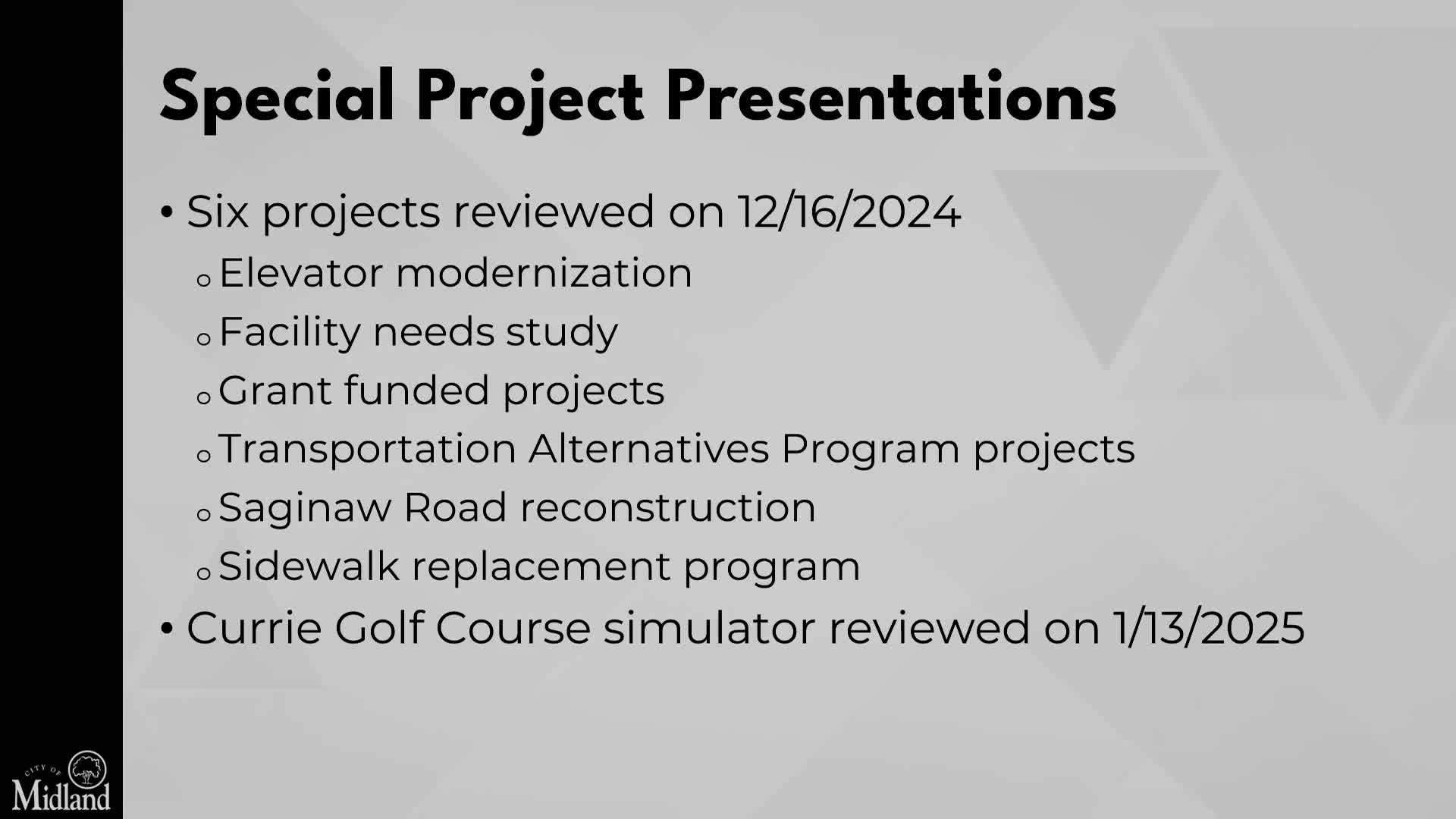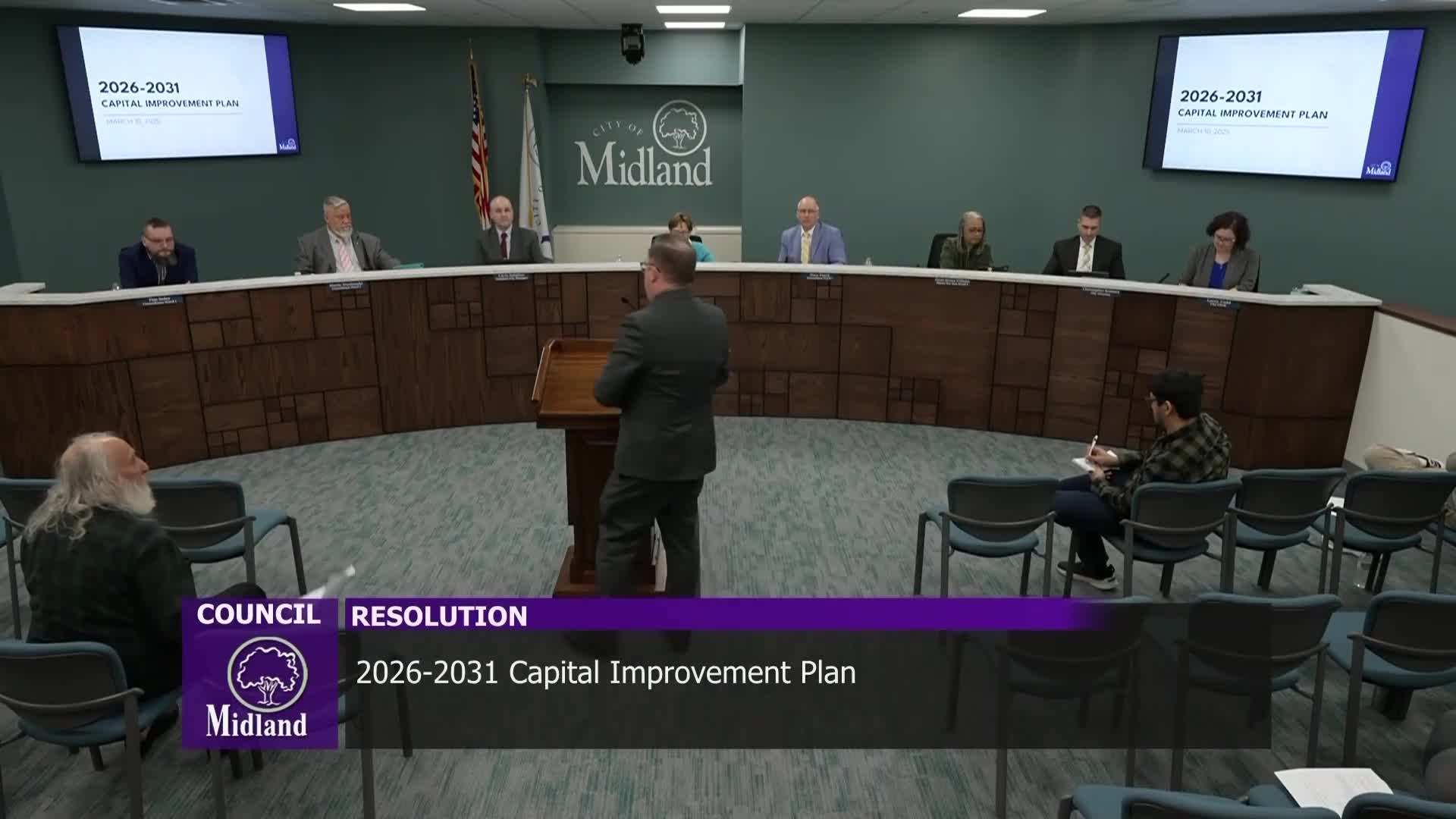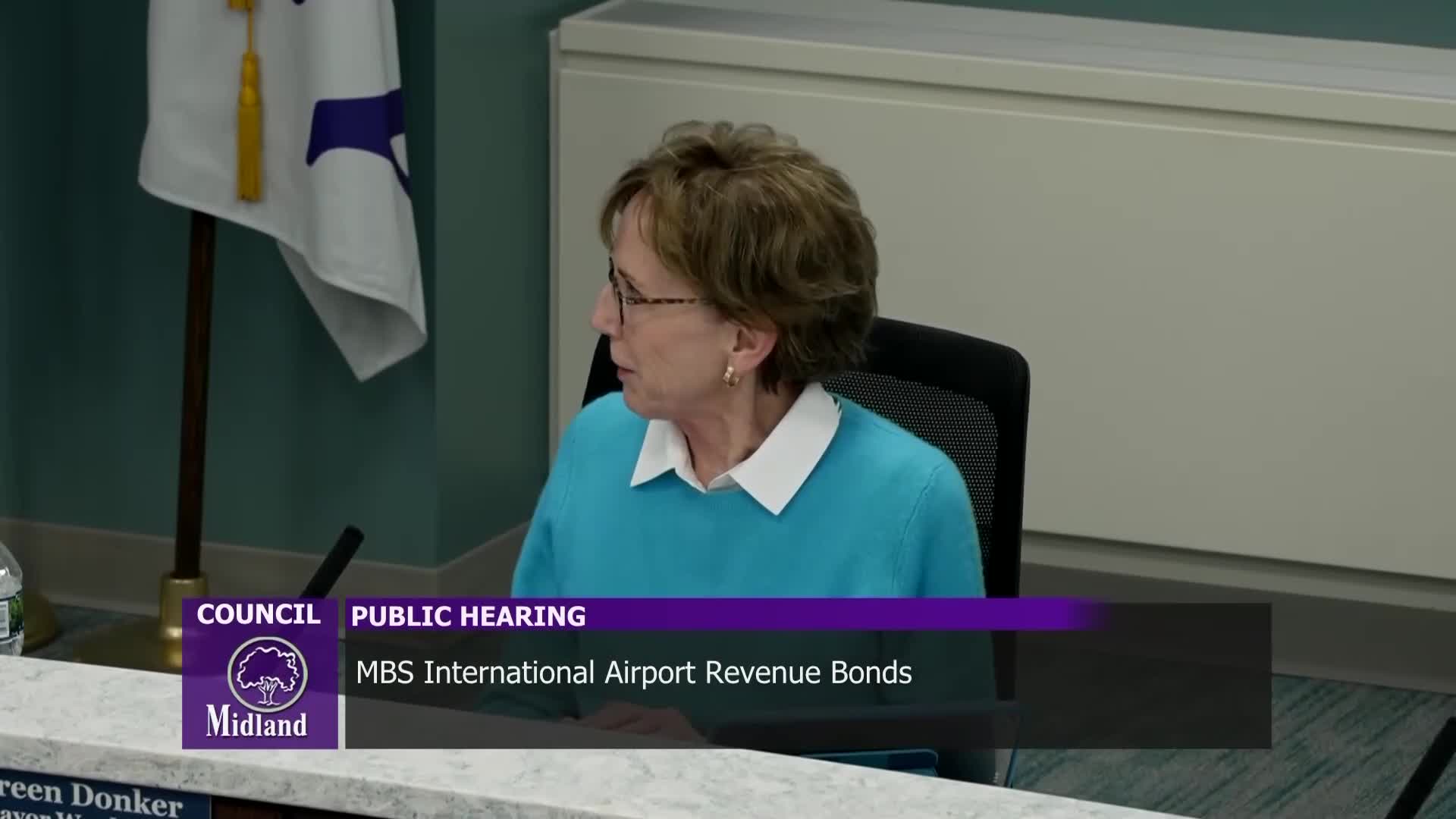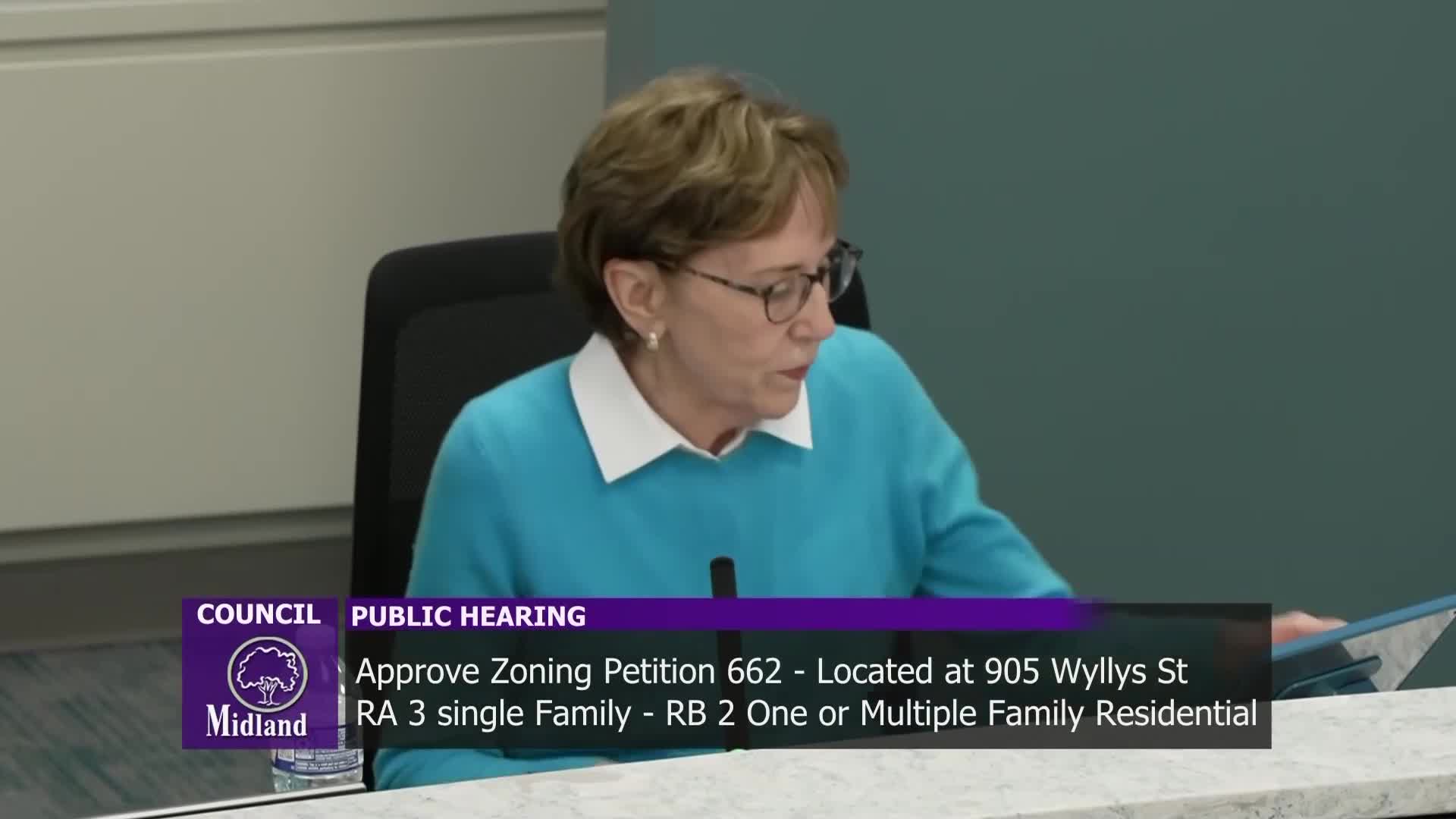Article not found
This article is no longer available. But don't worry—we've gathered other articles that discuss the same topic.

Council directs estimates for 2025 sidewalk program; Diamond Drive multimodal link moved to next CIP

Council receives proposed 2026–2031 capital improvement plan totaling $352 million over six years

Council approves tax-exempt revenue bond sign-off for MBS International Airport solar, EV chargers

